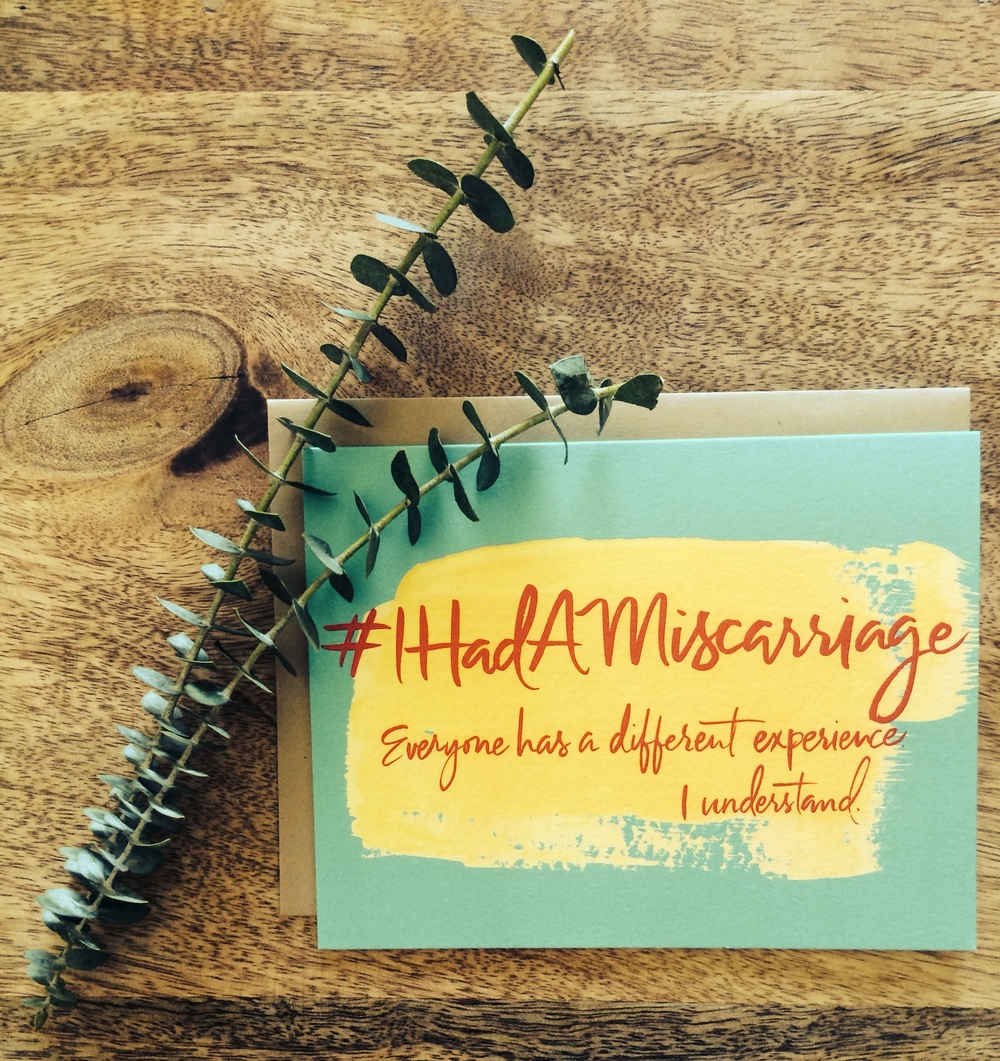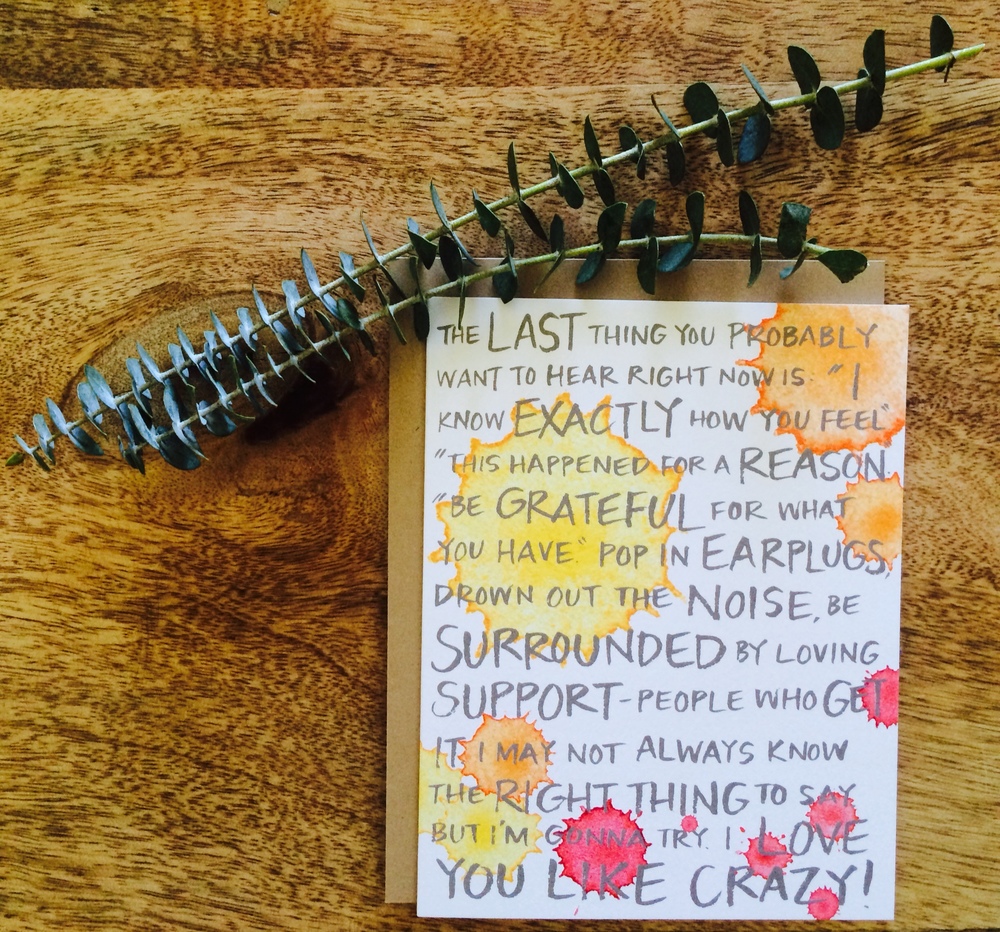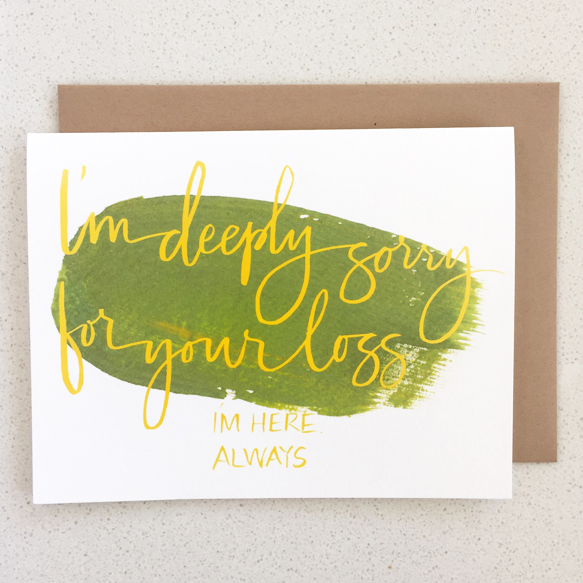A Brilliant Way to End the Taboo Around Miscarriages

By:
Up to 20 percent of pregnancies end in miscarriage, yet the health issue remains largely stigmatized in our country.
Clinical psychologist Dr. Jessica Zucker understands the pain and loneliness that comes with miscarriages. She suffered a miscarriage during the second trimester of her pregnancy and has created a line of pregnancy loss cards to help miscarriage victims and their loved ones communicate about the experience. Dr. Zucker offers a variety of cards from ones about going through a miscarriage to messages of sympathy.
While there are a number of pregnancy loss and miscarriage-related cards on the market, the current crop didn't necessarily speak to Dr. Zucker, so she created a pool of her own. So far, she has received hundreds of messages of support from women all over the world who have gone through miscarriages and beyond.
 Dr. Jessica Zucker - drjessicazucker.com
Dr. Jessica Zucker - drjessicazucker.com
Dr. Zucker, who specializes in women's reproductive health and has counseled patients grieving miscarriages, told ATTN: over the phone that her goal is to "normalize our cultural conversation surrounding grief."
"If one in four, one in five pregnancies end in loss, how is it that our culture still has such difficulty finding the 'right words' to be able to really connect with somebody in the aftermath of loss?" Dr. Zucker said. "So that is, in fact, the inspiration behind the cards: to help people connect after a difficult experience. Rather than clam up or send a quick text or disappear altogether, this is a way to say, 'Look, I saw this [card]. I thought of you.' The card that I purchased will suit you. It's helpful for the sender as well as the griever."
Dr. Zucker added that women can experience self-blame and shame after having a miscarriage due to cultural treatment of the issue. Some women fault themselves or are shamed by others for being unable to carry their pregnancies to term, even though miscarriage is more common than a lot of people realize.
RELATED: Mark Zuckerberg Just Highlighted a Painful Health Issue That's Rarely Discussed
 Dr. Jessica Zucker - drjessicazucker.com
Dr. Jessica Zucker - drjessicazucker.com
With this in mind, Dr. Zucker published a New York Times piece last year encouraging women to share the hashtag #IHadAMiscarriage on social media to help fight the stigma and show women they don't have to feel alone in this battle.
"There's no shame here," she said. "We don't need to be quiet about our pain. The hashtag itself is sort of saying, 'I'm owning my story' and it lets people in on the details that a lot of people feel they're not allowed to share because they're so intense and so disturbing, but if we're struggling with our experience, we do better to commune than we do to be in isolation."
She has previously written about what to say and what not to say to miscarriage victims, as certain comments on the matter can compound the loss. For example, telling someone, "at least you know you can get pregnant" can be very hurtful, Dr. Zucker said, because it misses the point. She added that there tends to be a push to move on and move forward from adversity but that society should given women more of an opportunity to grieve organically as needed. While she is aware that not all women who suffer miscarriages will need her cards, she wants to make that resource available to those who do.
RELATED: Chrissy Teigen: Never Ask a Woman When She's Having Kids
"We too often, I think, move on to the next [thing]," Dr. Zucker said. "I think it's profoundly important that we do better as a society to support women in a long-term way around these losses."
 Dr. Jessica Zucker - drjessicazucker.com
Dr. Jessica Zucker - drjessicazucker.com
A painful subject
Several months ago, Facebook founder Mark Zuckerberg made a bittersweet announcement about his wife's pregnancy. Though he expressed excitement about becoming a dad, he noted in his announcement that his wife had previously suffered three miscarriages, a move that many felt started a dialogue about the experience os miscarriage. As ATTN: noted at the time, Zuckerberg's insight on the matter felt especially significant because tons of people announce their pregnancies on the platform he created.
Because of his wife's miscarriages, Zuckerberg purposely waited until later in her pregnancy to share the good news with the world. Many people do this because miscarriages are more common early on in pregnancies. Unfortunately there are exceptions too, and those who miscarry after posting about their pregnancies on social media often don't know how to relay their losses to others.
Dr. Zucker acknowledged that social media can be a tool to discuss miscarriage and other tragedies but also present conflicts if someone posts sonograms to Facebook and goes on to suffer a miscarriage. The same goes for pregnant or young moms who may learn from their newsfeed that a friend has suffered a miscarriage.
"I think that using social media as a way to normalize our life events can be incredibly helpful when it comes to pregnancy loss," Dr. Zucker said. "But again, it can be triggering. So if somebody is newly pregnant and they go online and their friend has put online that she just had a miscarriage, I can see how that could be complicated. But I guess my feeling is, if we are sharing all of these 'happy' moments and everyone is putting their best face forward, there needs to be room to talk about pain and the humanity that touches all of us. It doesn't have to only be photos in Mexico, but it can also be about heartbreak."
October 15th is Infant & Pregnancy Loss Awareness Day. Check out this Facebook page for more information on pregnancy and infant loss.
